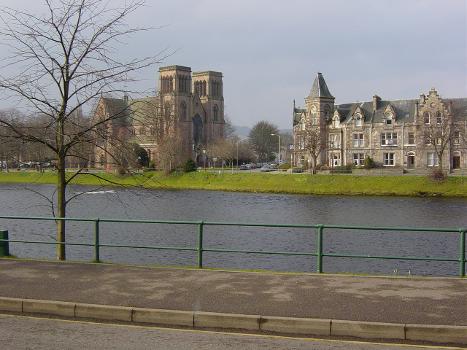General Information
Project Type
| Function / usage: |
Cathedral |
|---|
Location
| Location: |
Inverness, Highland, Scotland, United Kingdom |
|---|---|
| Coordinates: | 57° 28' 27.84" N 4° 13' 45.01" W |
Technical Information
There currently is no technical data available.
Excerpt from Wikipedia
Inverness Cathedral (Scottish Gaelic: Cathair-Eaglais Inbhir Nis), also known as the Cathedral Church of Saint Andrew (1866–69), is a cathedral of the Scottish Episcopal Church situated in the city of Inverness in Scotland close to the banks of the River Ness. It is the seat of the Bishop of Moray, Ross and Caithness, ordinary of the Diocese of Moray, Ross and Caithness. The cathedral is the northernmost cathedral in mainland Britain (Dornoch Cathedral is not actually a cathedral) and was the first new Protestant cathedral to be completed in Great Britain since the Reformation.
History
Bishop Robert Eden decided that the Cathedral for the united Diocese of Moray, Ross and Caithness should be in Inverness. The foundation stone was laid by the Archbishop of Canterbury, Charles Longley, in 1866 and construction was complete by 1869, although a lack of funds precluded the building of the two giant spires of the original design. The architect was Alexander Ross, who was based in the city. The cathedral is built of red Tarradale stone, with the nave columns of Peterhead granite.
The cathedral congregation began as a mission in 1853, on the opposite side (east) of the River Ness.
Bells
The Cathedral contains a ring of ten bells, which are noted as being the most northerly peal of change-ringing bells in the world.
Text imported from Wikipedia article "Inverness Cathedral" and modified on July 23, 2019 according to the CC-BY-SA 4.0 International license.
Participants
- Alexander Ross (architect)
Relevant Web Sites
- About this
data sheet - Structure-ID
20030207 - Published on:
15/08/2007 - Last updated on:
30/07/2014





